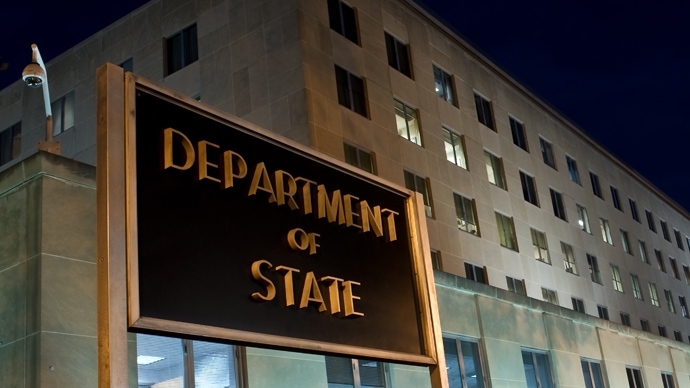US terror report provokes anger in Iran, Israel

Iran has rejected an annual US report that keeps Tehran on a list of state sponsors of terrorism as reflecting double standards, media reports said Thursday.
The foreign ministry was reacting to a State Department report released Wednesday that kept Cuba, Iran, Syria and Sudan on its list of so-called state sponsors of terrorism.
The report also highlighted what it said was Iran's role in supporting and funding the regime of President Bashar al-Assad in its fight against Syrian rebels.
"Accusing Iran of supporting terrorism is politicised and based on double standards," ministry spokeswoman Marzieh Afkham said in a statement reported by the official IRNA news agency.
She questioned Washington's anti-terrorism intentions, recalling "innocent people who fall victim" to US drone attacks in the region as well as "the turning of a blind eye to Zionist (Israeli) crimes against the Palestinians."
She also took issues with what has been the progressive removal from international terror lists of the People's Mujahedeen of Iran, an exiled opposition group that says it seeks the overthrow of Iran's Islamic regime through peaceful means.
Banned in Iran, Tehran has listed it as a terror group for carrying out bombings and assassinations.
Britain struck the group off its terror list in 2008, followed by the European Union in 2009 and the United States in 2012.
That, Afkham said, "also poses a serious challenge to the claim of US statesmen in combating terrorism."
Israeli police unhappy too
Meanwhile, Israeli police on Thursday challenged Washington's inclusion of Jewish extremist attacks on Palestinians in its global terror report, saying such incidents could not be likened to militant attacks.
For the first time, the State Department's 2013 Country Reports on Terrorism included a reference to a growing wave of racist anti-Palestinian vandalism, euphemistically known as "price tag" attacks.
"Attacks by extremist Israeli settlers against Palestinian residents, property, and places of worship in the West Bank continued and were largely unprosecuted," the report said, citing UN and NGO data.
But Israel police spokesman Micky Rosenfeld said the incidents were far from the global terror threats outlined in the report.
"There's no comparison whatsoever between criminal incidents with nationalistic motives and terrorist-related incidents," Rosenfeld told AFP.
The US report noted that "the UN Office of the Coordinator for Humanitarian Affairs reported 399 attacks by extremist Israeli settlers that resulted in Palestinian injuries or property damage.
"Violent extremists, including Israeli settlers, vandalised five mosques and three churches in Jerusalem and the West Bank."
Defining price tag attacks as "property crimes and violent acts by extremist Jewish individuals and groups in retaliation for activity they deemed to be anti-settlement," the report said that over the year, the phenomenon had spread into Israel from the occupied West Bank.
It acknowledged that Israeli police had set up special units to pursue such cases and the government had designated groups responsible as "illegal associations," giving authorities broader powers to act against them.
"There are a number of ongoing investigations," Rosenfeld told AFP, saying that four settlers suspected of involvement in a racist graffiti attack on a mosque in northern Israel last month, were taken for questioning on Wednesday and later placed under house arrest.
Earlier this week, more racist graffiti was sprayed on the wall of a mosque in Fureidis near the northern port city of Haifa.
The town's name means "Paradise" in English.
"It is vandalism with nationalistic motives but these are not nationalistic attacks on Palestinians," Rosenfeld said.
"You cannot compare whatsoever between terrorist acts, the cold-blooded killing of Israelis, and... vandalism on that level."
Another recent attack targeted shrines at Tabgha on the shore of the Sea of Galilee, where Christians believe Jesus performed the miracle of the loaves and fishes, Roman Catholic officials said.
Church officials said a group of religious Jews in their early teens had damaged crosses and attacked clergy.
Middle East Eye propose une couverture et une analyse indépendantes et incomparables du Moyen-Orient, de l’Afrique du Nord et d’autres régions du monde. Pour en savoir plus sur la reprise de ce contenu et les frais qui s’appliquent, veuillez remplir ce formulaire [en anglais]. Pour en savoir plus sur MEE, cliquez ici [en anglais].

